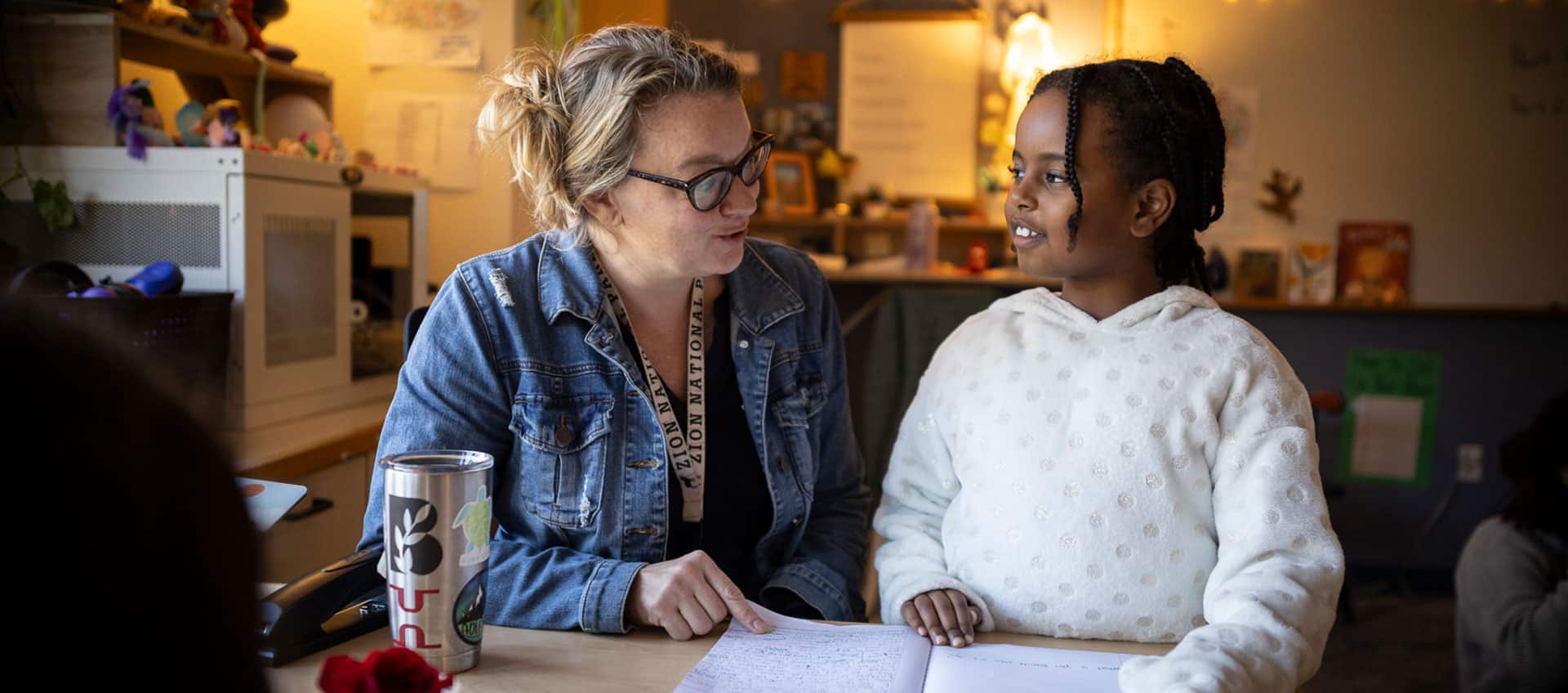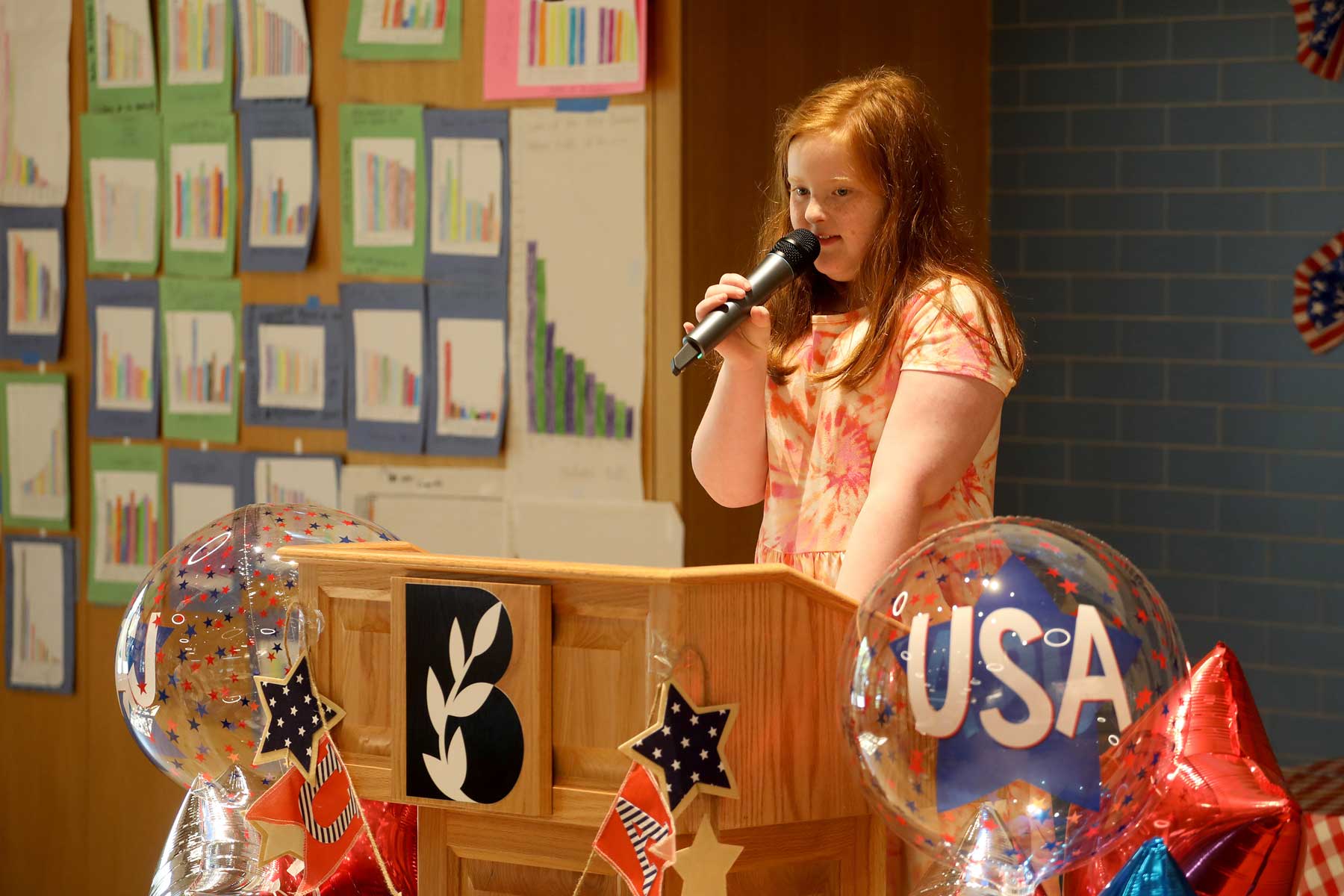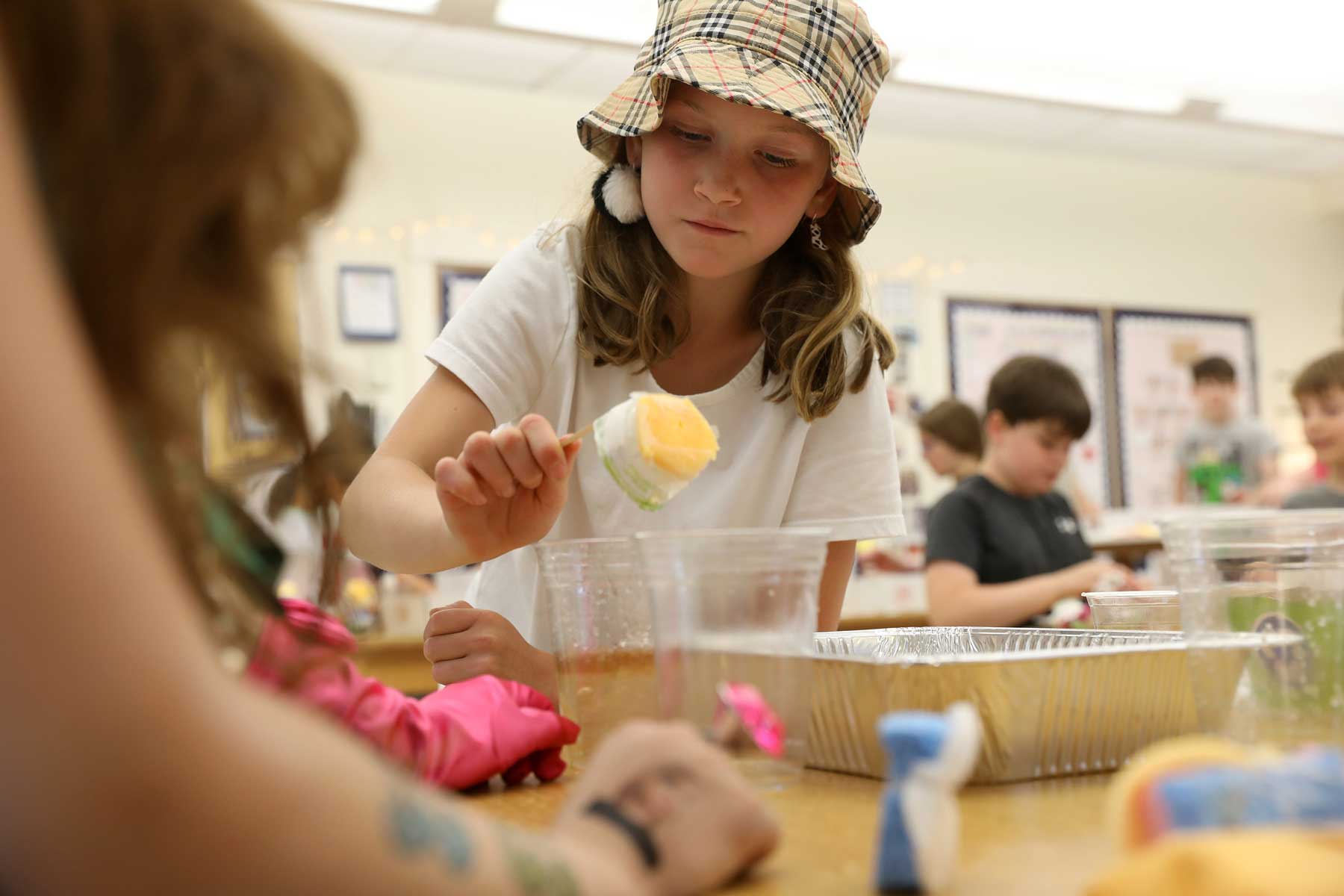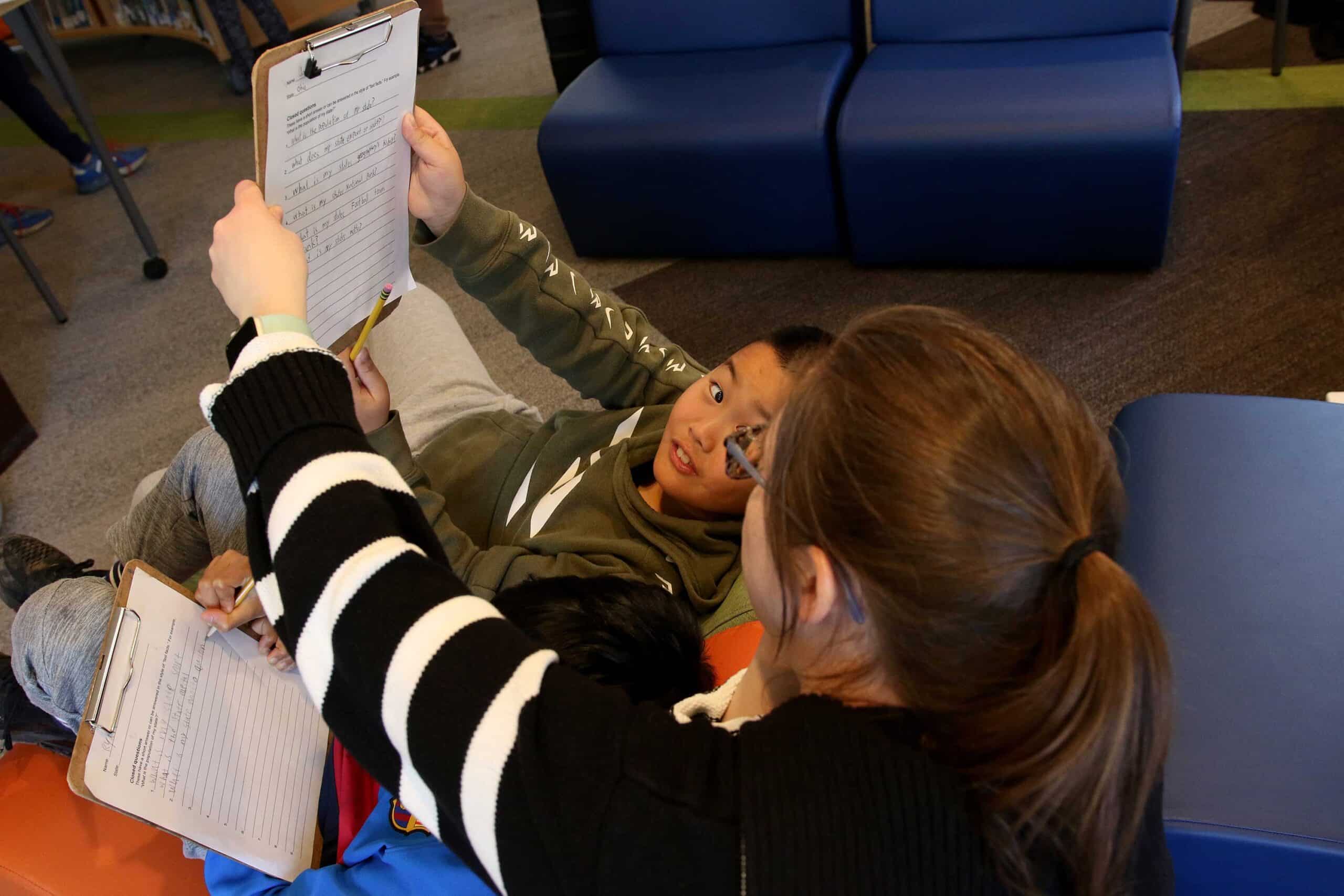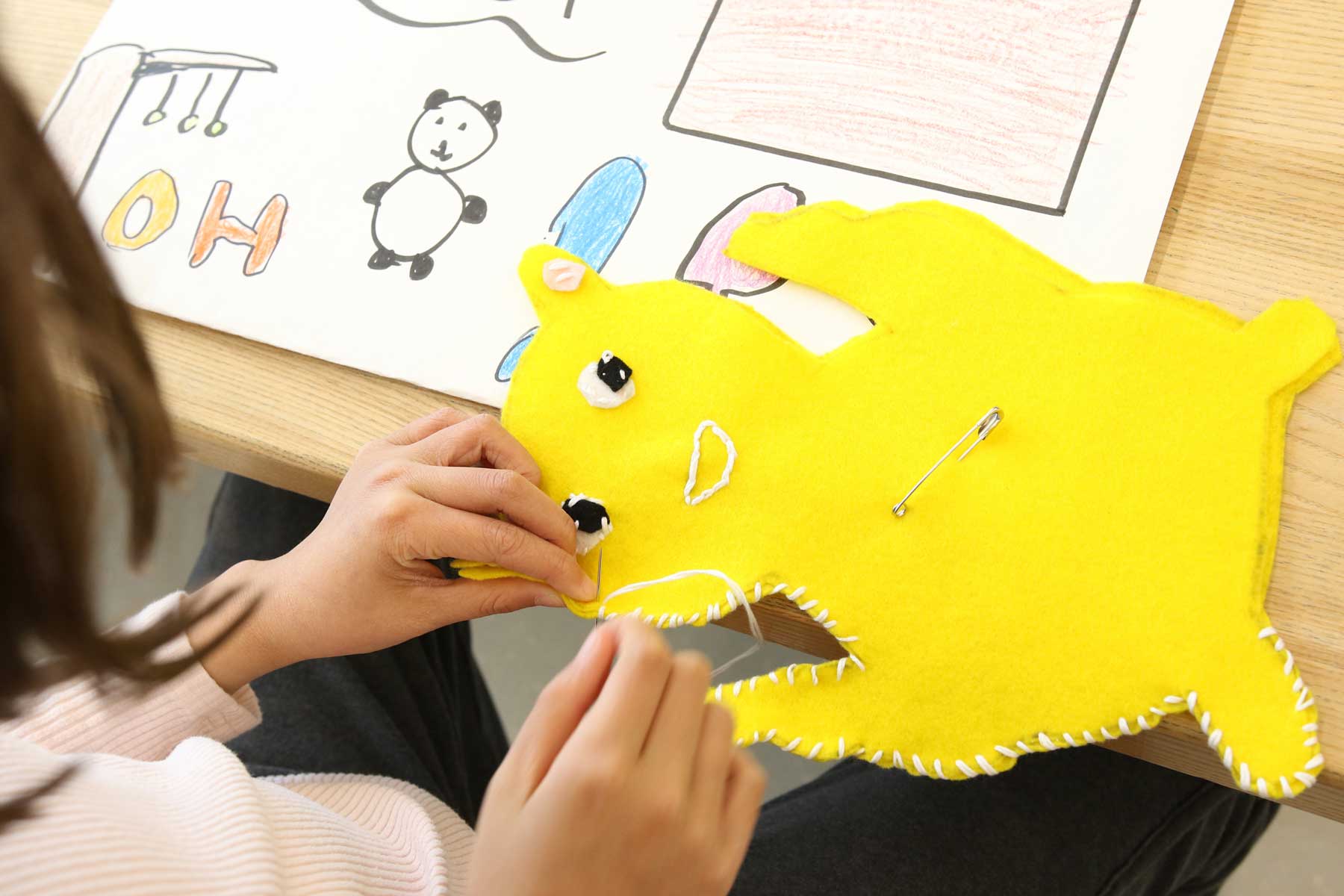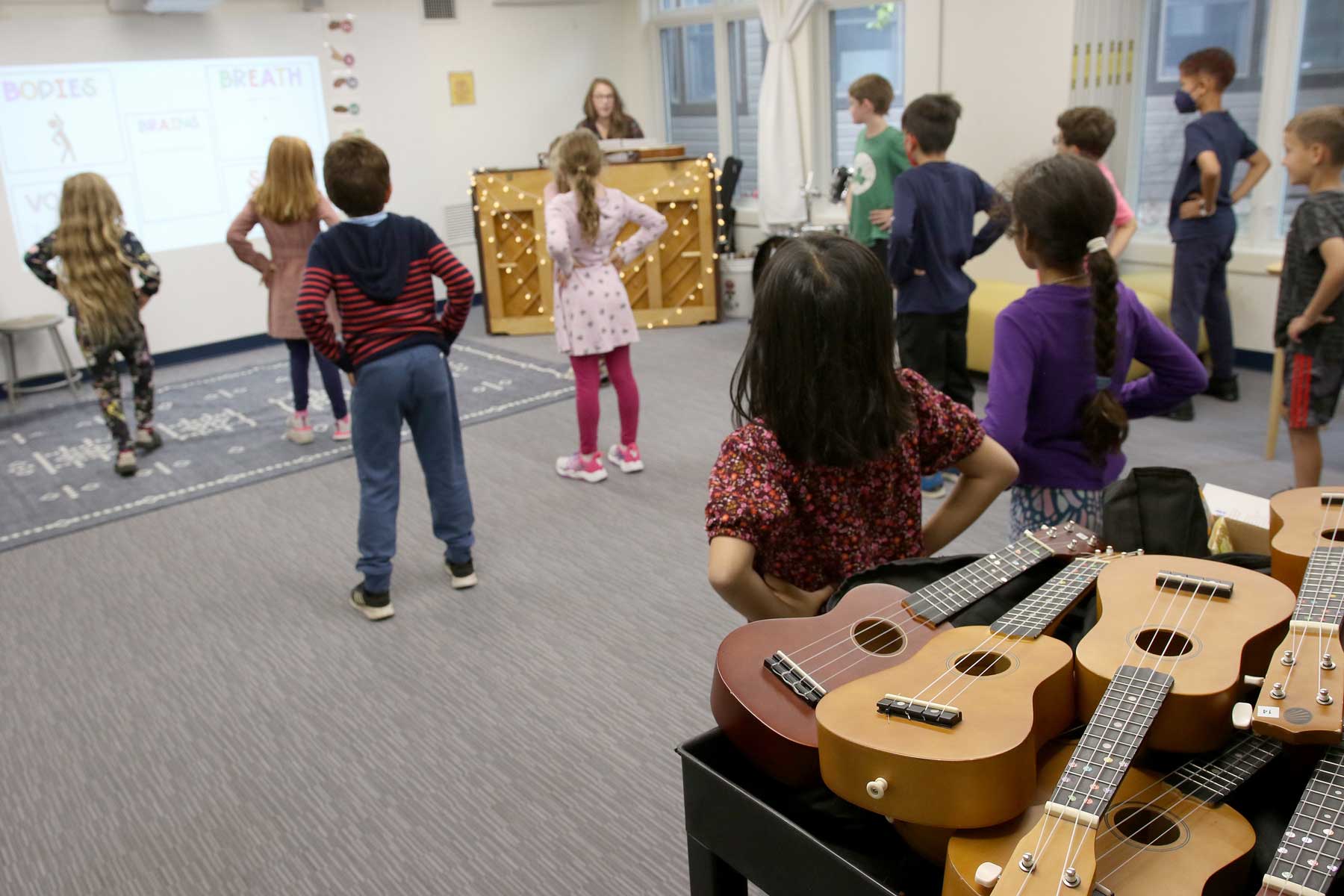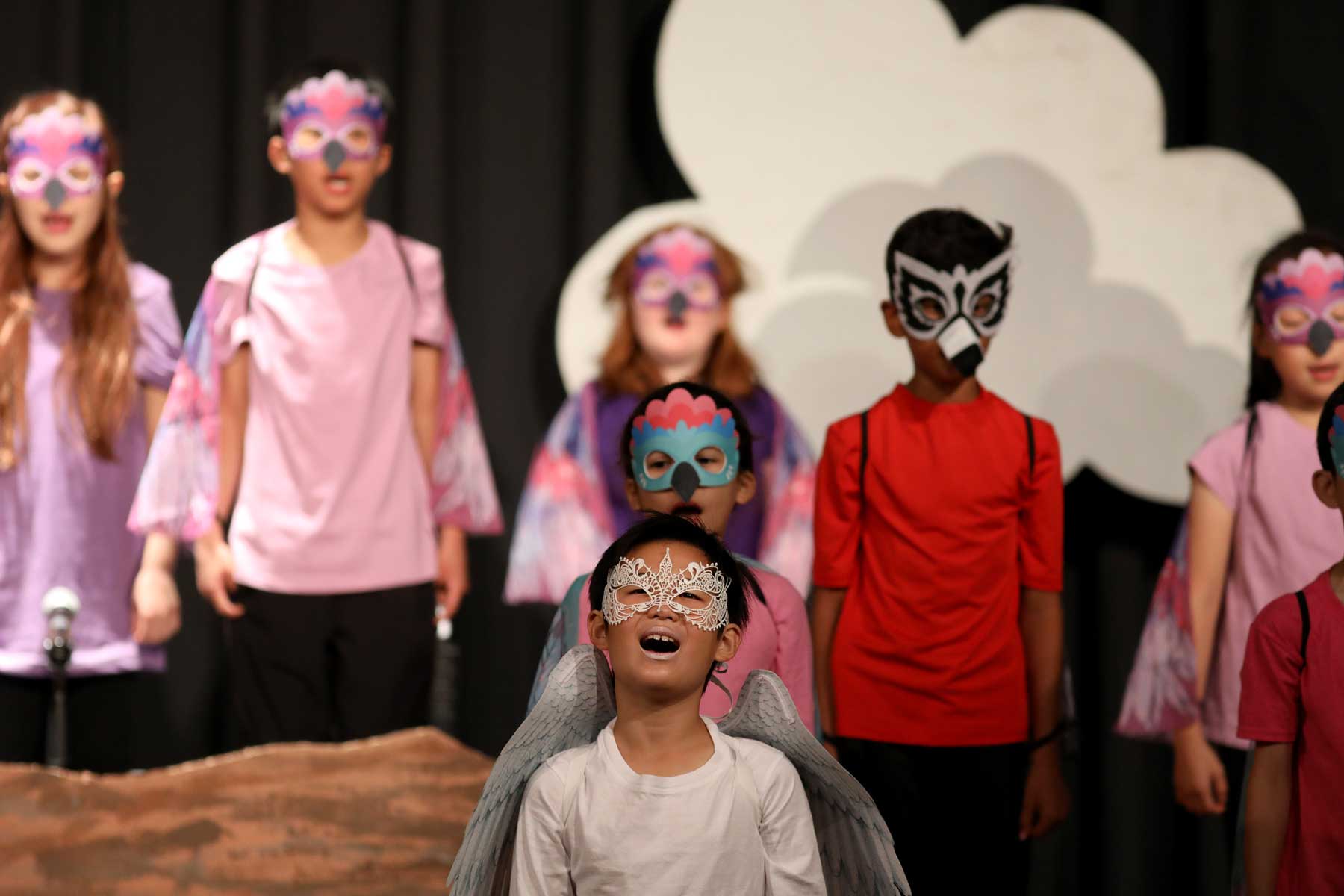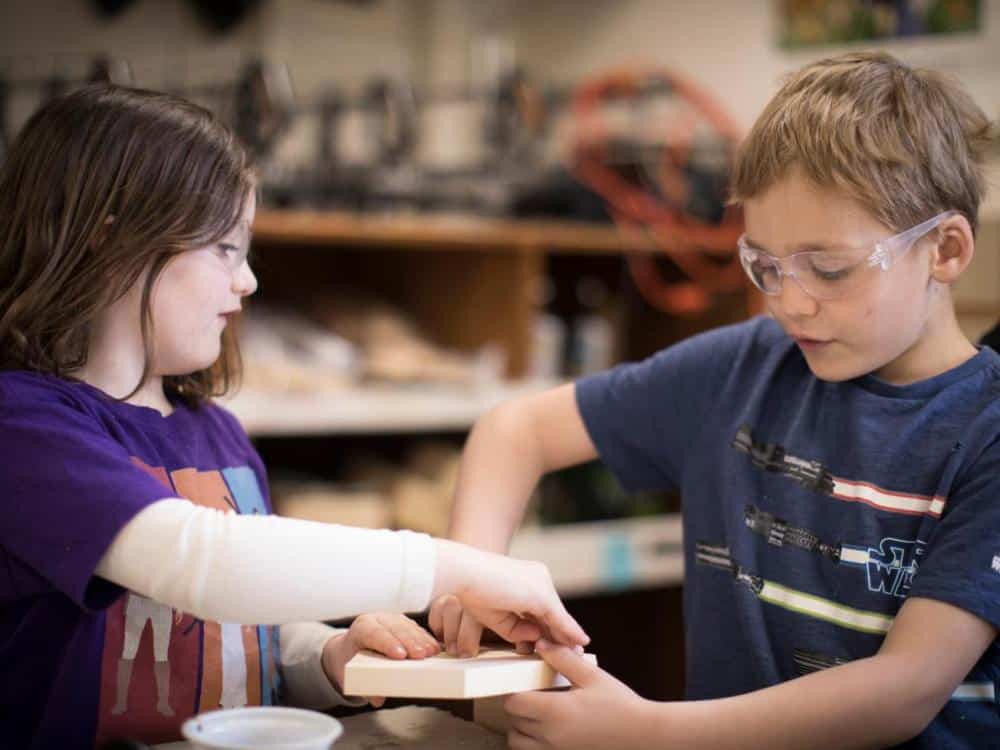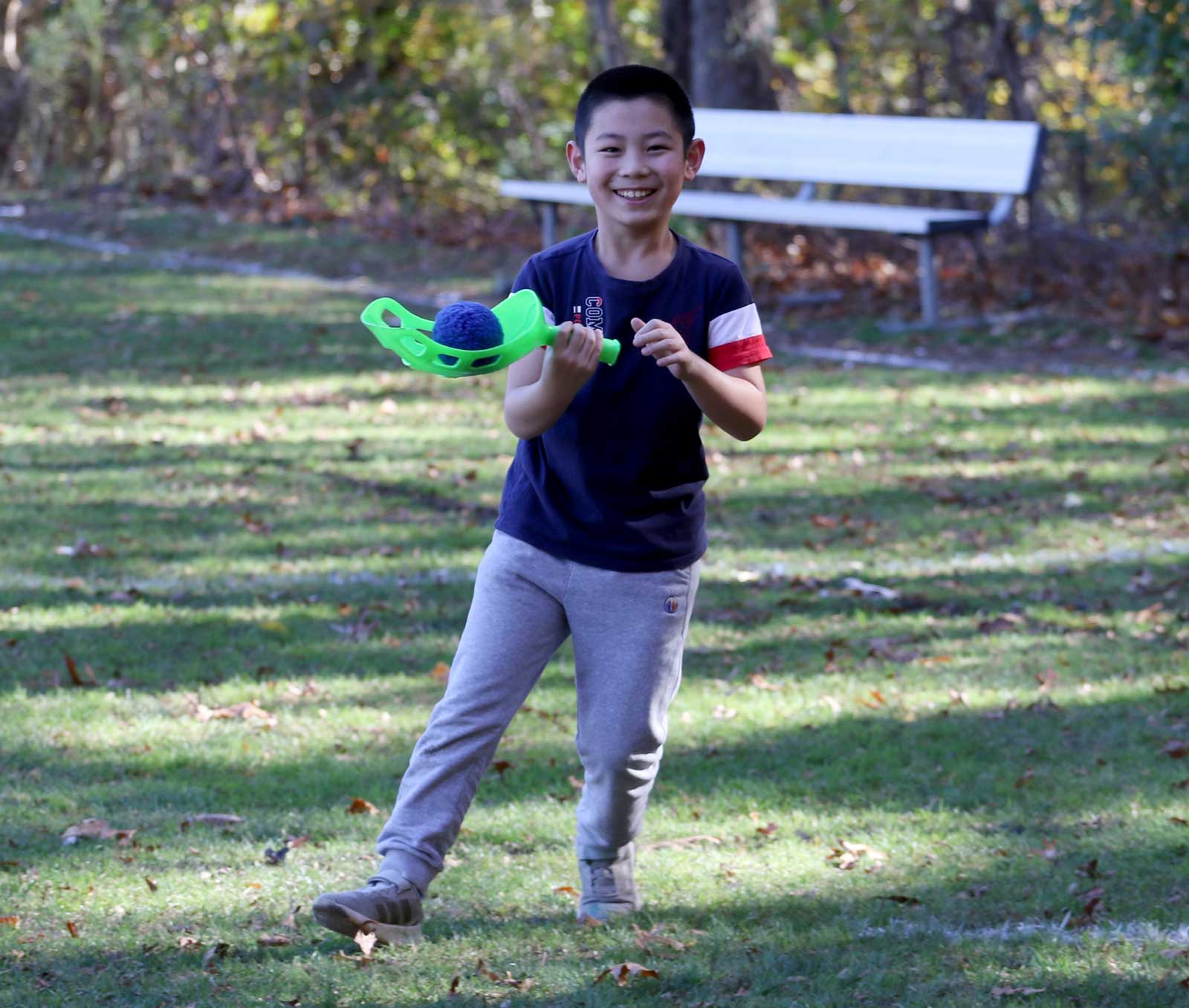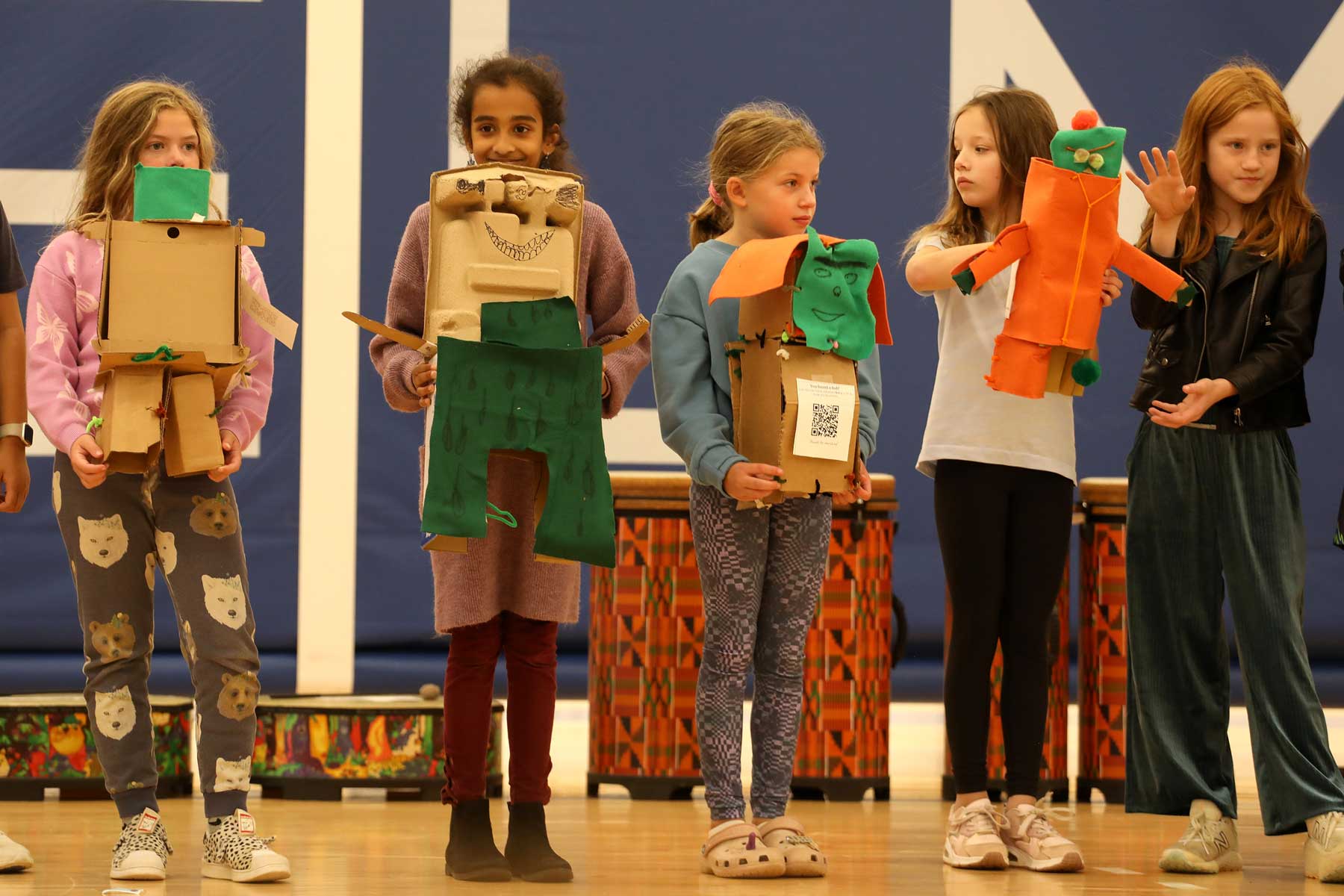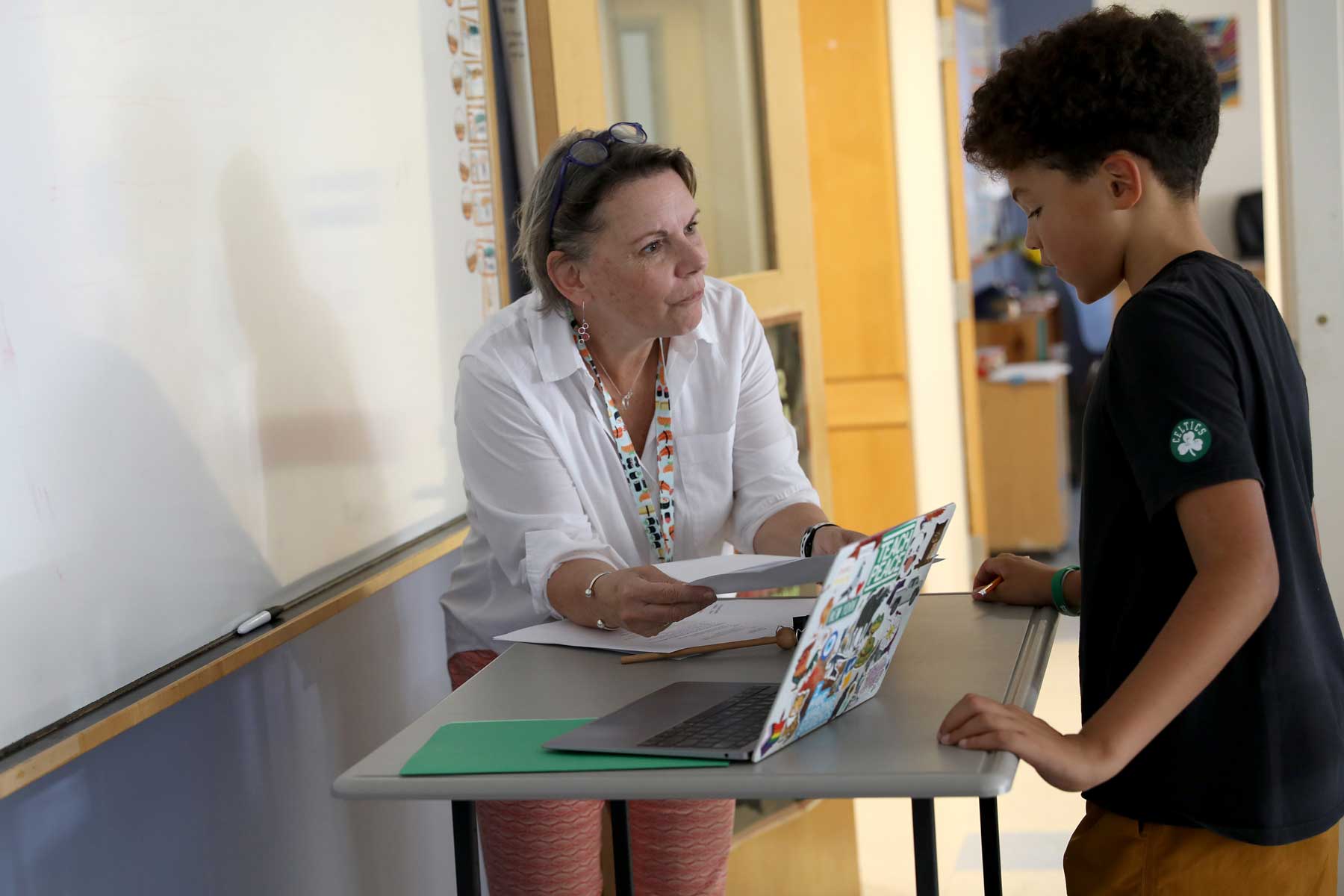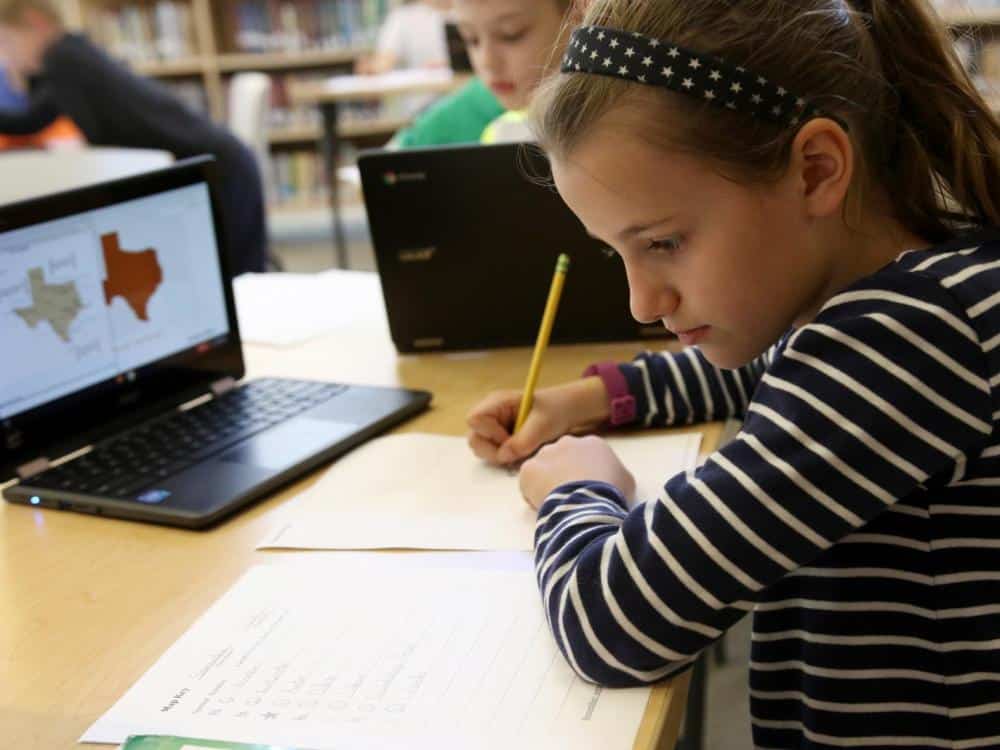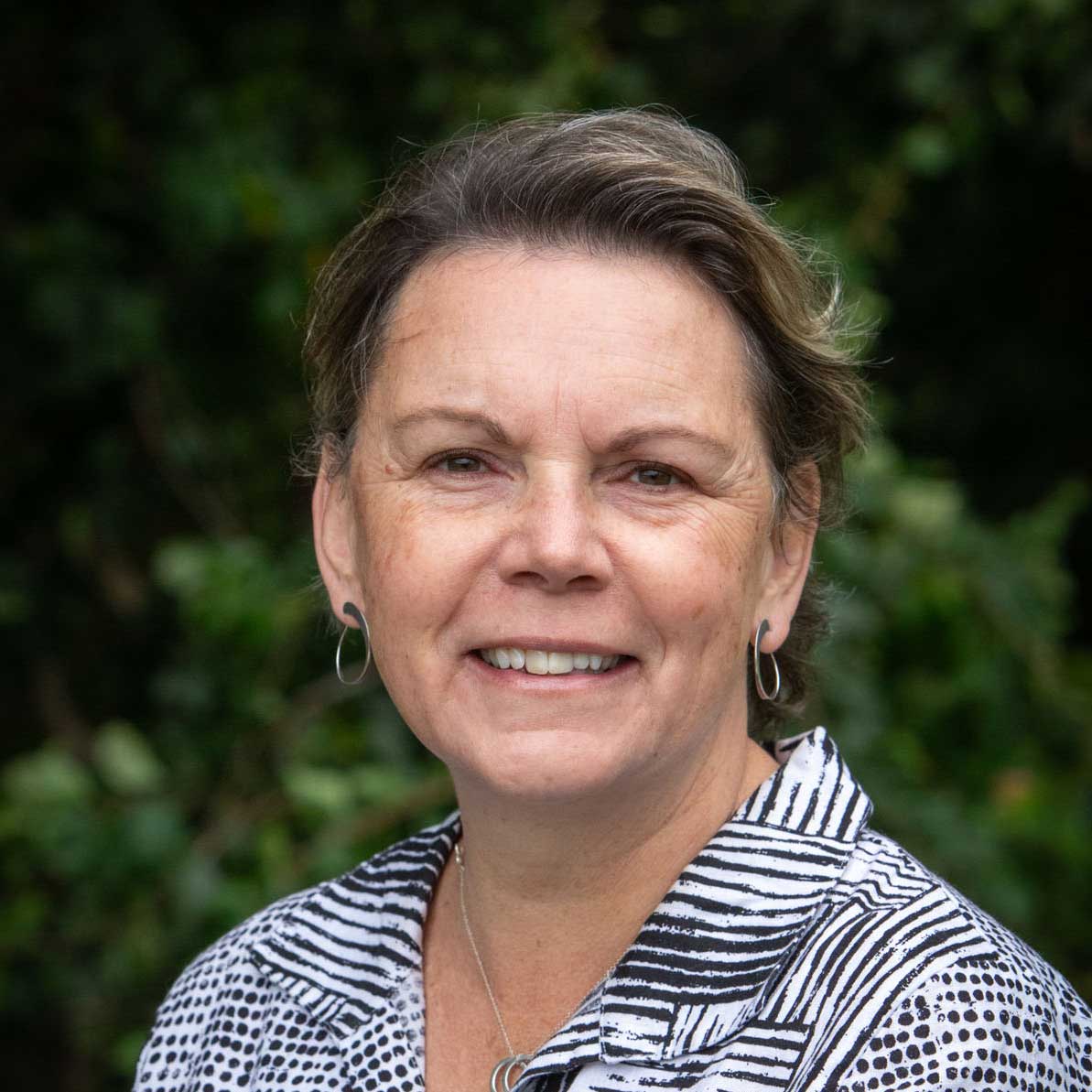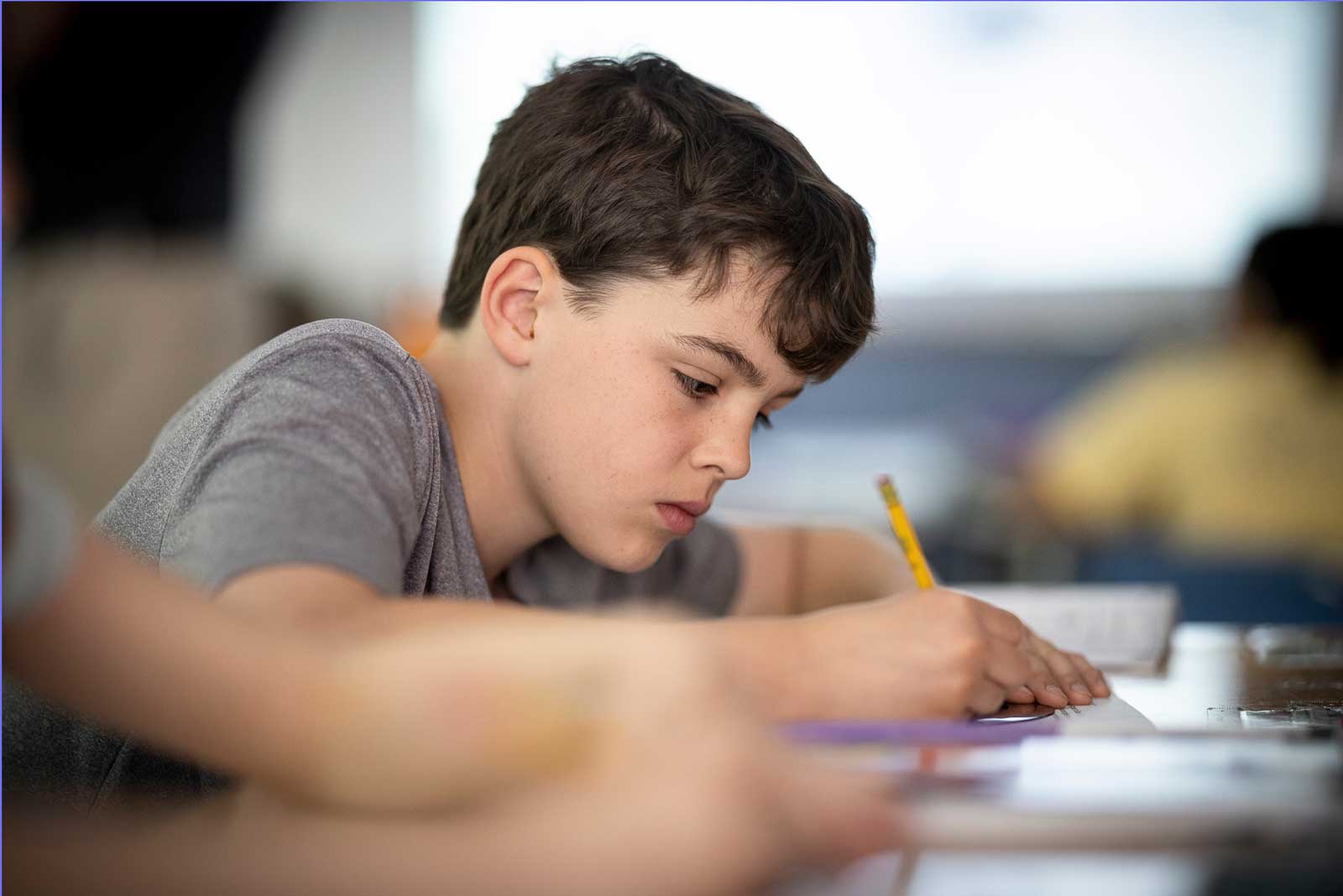
Reading
The third grade reading program fosters student enjoyment of literature and provides rich experiences for students to become fluent readers and learn comprehension skills. Students meet in small groups for shared reading experiences and direct instruction. The students compare and contrast their reading books with an emphasis on plot, setting, character traits, and sequence of events. They also explicitly learn about reading comprehension strategies, including activating schema, making predictions, asking questions, making inferences, creating sensory images, and making connections. Reading practice in school and at home helps build their fluency, vocabulary, and critical thinking skills. Throughout the year, students work on decoding, reading fluently, and reading with expression. The program also provides many opportunities for reading a variety of genres: fiction, non-fiction, poetry, and biography.
Our third grade students will:
- read and discuss a variety of fiction and non-fiction materials
- analyze words and extend their vocabulary through context clues
- develop literal, inferential, and evaluative reasoning
- develop word recognition skills and comprehension strategies
- organize and sequence events
- identify and summarize the main idea
- predict outcomes
- differentiate fact from opinion
- identify setting, main characters, purpose, problem, solution, and resolution
- compare and contrast information
Class books have included:
- Who Was Jackie Robinson?
- Stone Fox
- Because of Winn-Dixie
- Night of the Spadefoot Toads
- In the Year of the Boar and Jackie Robinson
Writing
The third grade writing program includes the study of spelling, grammar, mechanics, usage, and composition. Students generate ideas, write stories, recap memories, and create characters in their writer’s notebooks. They are also given formal writing assignments and practice skills enhancing word choice, descriptive language, varied sentence structure, catchy openings, dialogue, sensory details, and similes. Specific rules of writing are explicitly taught, including correct grammar, sentence structure, capitalization, and punctuation. Students learn to write in various styles for a variety of purposes such as free writing, persuasive writing, research writing, personal narrative, and formal paragraph writing. They participate in weekly Writers’ Group, a free writing time that allows for the students to also practice giving and receiving feedback about their writing. The State Report provides an opportunity for students to integrate their writing skills. Students also learn how to write in cursive, using the Zaner-Bloser style of writing.
Our third grade students will:
- generate topics for writing
- use the strategies of the writing process such as planning, drafting, revising, editing, and publishing
- share writing and receive feedback
- organize and sequence ideas
- use increasingly sophisticated descriptive language
- write in different genres
- research topics using the Internet, library, and other sources
- understand and demonstrate the process for writing research papers (in conjunction with social studies reports)
- build confidence and clarity in writing through the development of specific language skills
- understand and use parts of speech correctly: nouns, pronouns, verbs, and adjectives
- understand and apply correct capitalization
- understand and apply punctuation: apostrophes, commas, end punctuation, and quotation marks
- understand how to develop and write a good paragraph
- develop research skills
- develop spelling skills
- form cursive letters in a developmentally appropriate manner
Listening and Speaking
Through small and large group experiences the students develop skills in listening attentively, comprehending and retaining information, and presenting ideas to a group.
Our third grade students will:
- listen actively when others are speaking
- listen actively during a group discussion
- demonstrate appropriate ways to be heard
- respond meaningfully in conversation
- follow multi-step verbal instructions
- recall specific information
- share thoughts and ideas when participating in class meetings and when problem-solving with peers
- plan and confidently share research presentations
